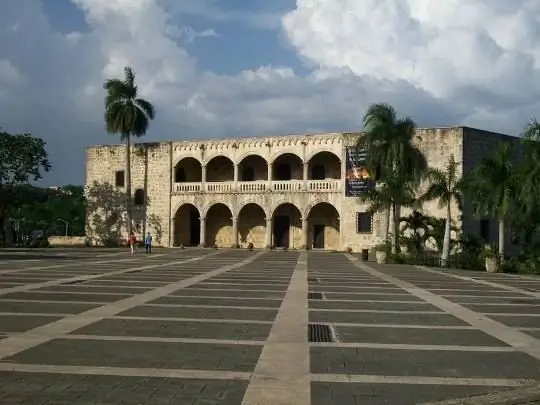
Description of the attraction
The two-story Columbus Palace is located above the Osama River in Plaza de España in the historic center of Santo Domingo. It was erected in 1514 for the son of Christopher Columbus, the discoverer of America. On the construction of the palace for Columbus, 1,500 representatives of the Indian tribe worked, who were sentenced to correctional labor for some sins. Diego Columbus, appointed viceroy of the king, did not enjoy the house specially built for him for long. He lived here for only 7 years and went home to Spain. The Columbus family owned the mansion in Santo Domingo until 1577. Then it was closed and left at the mercy of local residents, who did not fail to take away everything of value. The building stood boarded up for a long time and gradually deteriorated. The palace was saved from complete destruction in 1870, when it was added to the list of cultural monuments.
The original Columbus palace had 55 rooms, which had to be forgotten in the middle of the 20th century, when restorers began to restore the building. Only 22 halls were repaired. Nevertheless, the general public was told that the amazing atmosphere of the colonial era, inherent in the house of Columbus, could be preserved.
Currently, the building houses a museum dedicated to the life of the Spaniards who lived in Santo Domingo in the 16th century. The very short beds that can be seen in the master's bedrooms are explained not by the short stature of the colonists, but by the fact that the nobles at that time slept while sitting. The ladies were afraid to damage their hair, which was done once a month, and the gentlemen thus helped their stomachs to digest late dinners.
Many of the interior items of the Columbus house are original, although they were not made in Santo Domingo, but in Spain, from where they were delivered to Santo Domingo. Here you can see knightly armor, kitchen utensils, antique furniture, art canvases, mirrors covered with a noble patina. The spiral staircase that leads to the second floor of the building is also noteworthy. It is twisted clockwise at the request of the owner, who was left-handed.






